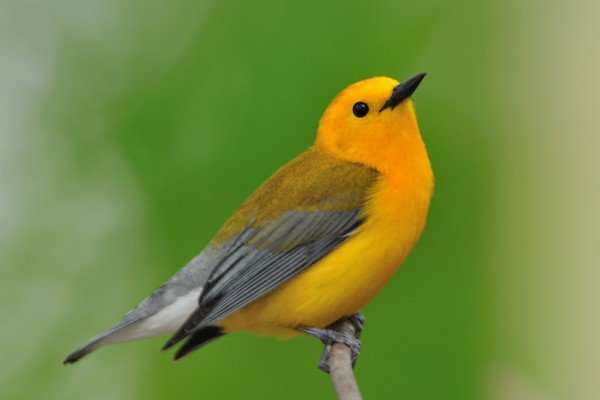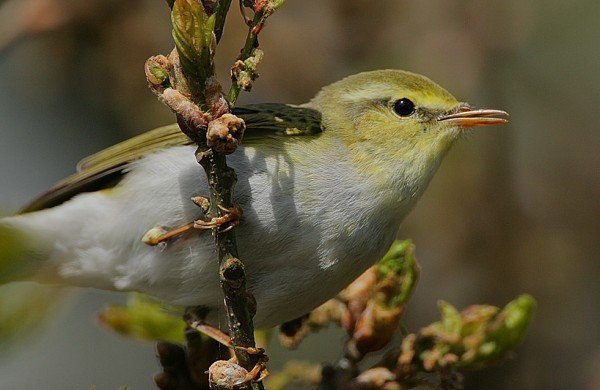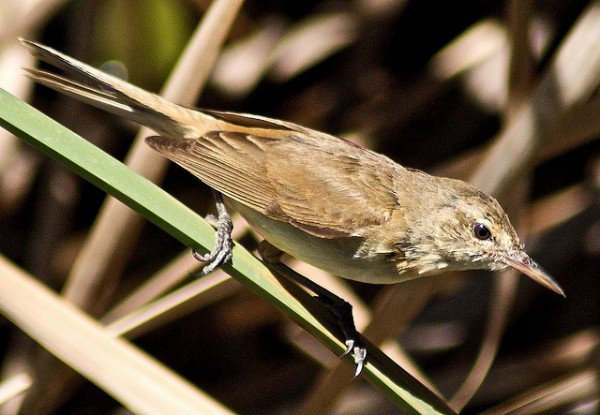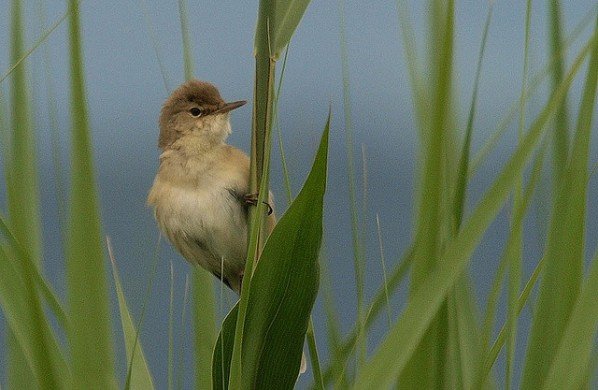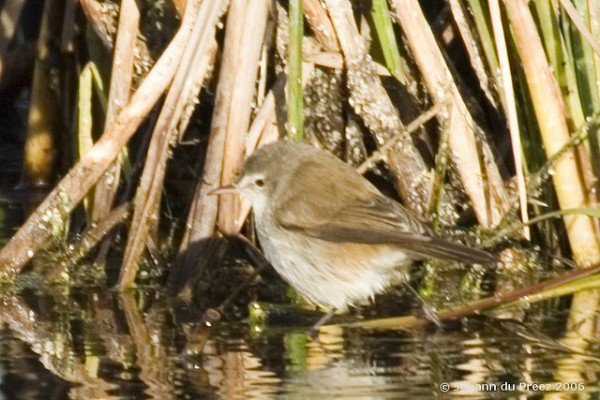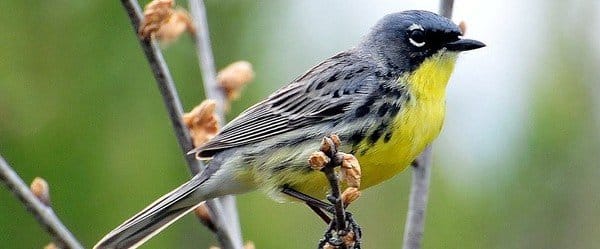American Warblers are REAL Warblers
If I would ask most of you what this bird is, most of you would know that this is a Prothonotary WARBLER.
Dale Forbes, a European birder argues that only European warblers are 'true' warblers. I argue that American warblers are true warblers.
He says this:
"Any self-respecting Palaearctic birder will tell you that a Wood Warbler is actually a Phylloscopus sibilatrix and looks something like this…"
(European) Wood Warbler
It looks rather like a bland finch, does it not? Our warblers are indeed true warblers. Wood warblers. These birds, including Prothonotary warblers, Yellow-Rumped Warblers, American Redstarts, and many more, are indeed Wood Warblers. If you would look at a national wildlife refuge bird checklist, or any reliable field guide, you would notice these birds are under the Wood-Warbler section. Forbes argues that 'real' warblers are brown. Our warblers are known for their brilliant colors. Yellow, orange, and some even have a blue tint to them, like the Black-Throated Blue Warbler, or the Cerulean Warbler.
He goes on to say:
"…and that warblers are fascinatingly beautiful creatures with a spellbinding myriad of subtle brown hues. At the very most they have some gentle touches of pastel yellow (see image of a real Wood Warbler, above)"
NOTICE: The picture above is the one he was refering too.
A real wood warbler? As far as I thought this was a real wood-warbler, too:
Magnolia Warbler
Just because our warblers look like more than just a drab sparrow does not mean that they are not true wood warblers. Even though warblers look like sparrows in Europe, that does not mean that our warblers aren't true warblers just because they have vivid colors that would catch your eye.
(European) Reed Warbler
Looks alot like a house wren, doesn't it?
Wow! Look at the picture above! A warbler! Oh... wait... thats an eastern phoebe.
And there's another one down below! No! That's a... (European) marsh warbler?
(European) Marsh Warbler
I could argue that they don't have true warblers, but rather phoebes. Isn't that what that looks like? But, granted, they are warblers (even if they are bland, and even ugly). Forbes also says:
"and the practically boldly coloured Lesser Swamp Warbler / Cape Reed Warbler (Acrocephalus gracilirostris), with its distinctively bright underparts."
Now lets take a look at this 'boldly colored warbler with bright underparts':
(European) Lesser Swamp Warbler
Boldly colored with bright underparts? Looks dull brown with white underparts, not 'distinctly birght' underparts. True, the photo quality isn't 100% perfect, but still, it is a drab brown bird with a white uderside (Oh, he also calls it "almost gaudy").
Allow me to introduce the boldly colored Blackburnian WARBLER:
Blackburnian Warbler
Now that is boldly colored! Not neccesarilly with bright underparts, but the orange tint is more brightly colored than just white.
He also says:
"So, to get back to my initial point, those silly birds you refer to as “wood-warblers” have nothing whatsoever to do with warblers and certainly nothing to do with a Wood Warbler. While being undoubtedly beautiful, what you have are actually brightly coloured canaries with silly little bills. Consequently, I would like to humbly suggest a radical process of renaming."
What is silly about them? What do you mean they have 'nothing whatsoever to do with wood warblers? They have everything to do with wood warblers. THEY ARE WOOD WARBLERS! But he did get one thing right. They are beautiful (no offense, but unlike European warblers). What we have are actually brightly-colored canaries with silly little bills. Where did that come from? They are warblers. And where did the part about 'silly little bills' come in?
He posted in his article:
Kirtland’s Silly-Canary (Dendroica kirtlandii)
Image by U.S. Fish and Wildlife Service – Midwest Region cc on flickr
"Constructive ideas on naming norms and standards would be much appreciated.
Come on Americans, if you have it in you to invent great society-changing innovations such as Macdonalds Hamburgers, the Hummer and democratic capitalism, surely a small logical name change would not be that hard to do?"
Okay. What do you think? We call them warblers just to make ourselves feel good? They ARE warblers!
And about the last part: Okay, Austrian, what does that have to do with warblers? We never said McDonalds hamburgers or the hummer were society-changing innovations. But, the light bulb, airplanes, and other such things that were invented in America were society-changing innovations.
An illogical name change would not be hard, by why change the name when they really are wood warblers?
Also, no matter what, I WILL NEVER call them anything but warblers. They are warblers. Wood warblers. Look at a national wildlife refuge bird checklist. They are under 'wood warblers'. Look on any reliable bird website or book.
They are warblers, but they are colorful unlike those in Europe.
One person left a comment under your article: 'Your just jealous!'
I agree. Why call them 'silly little canaries' and 'colorful canaries with silly little bills' and then bring up somthing that doesn't een have to do with warblers? Meaning: "Come on Americans, if you have it in you to invent great society-changing innovations such as Macdonalds Hamburgers, the Hummer and democratic capitalism, surely a small logical name change would not be that hard to do?"
So why did you bring up 'great society-changing innovations such as Macdonalds Hamburgers'? Are you jealous? As stated earlier, we never said they were society-changing.
GET HIS FULL ARTICLE AT: https://10000birds.com/this-is-not-a-wood-warbler.htm
In the article below, the author makes a wonderful point: The birds in America and Europe are both called warblers, but they are in two completely different families.
Our warblers are better looking, but... they are both warblers, though, which brings back up my main point!
Our warblers are TRUE warblers-- wood warblers! Get the article at:
Check out this article:
https://10000birds.com/warbler-wars-the-facts-the-stats-the-pictures.htm
